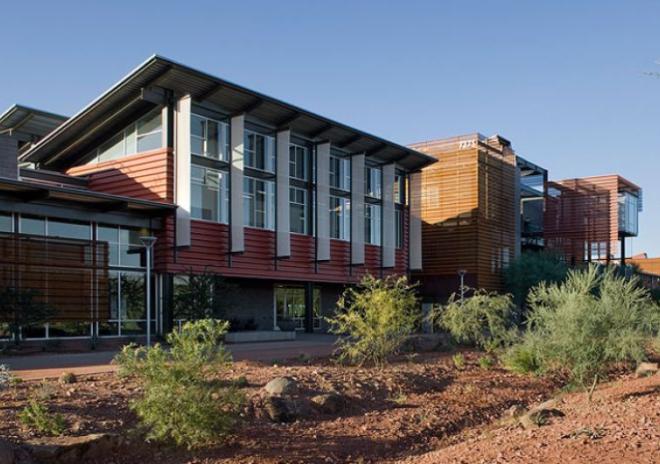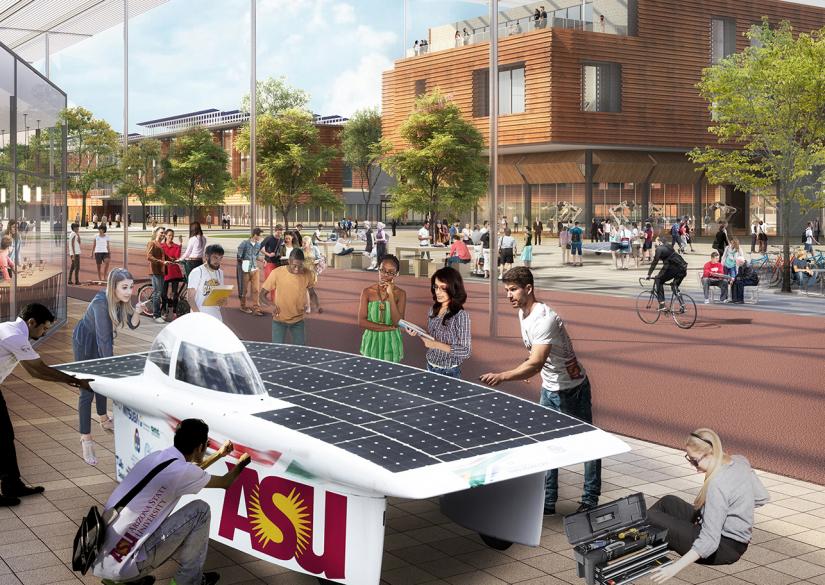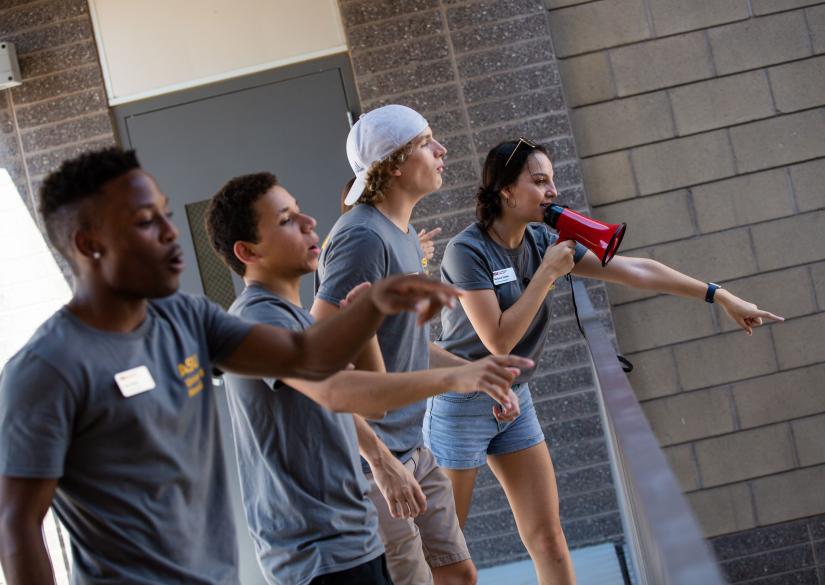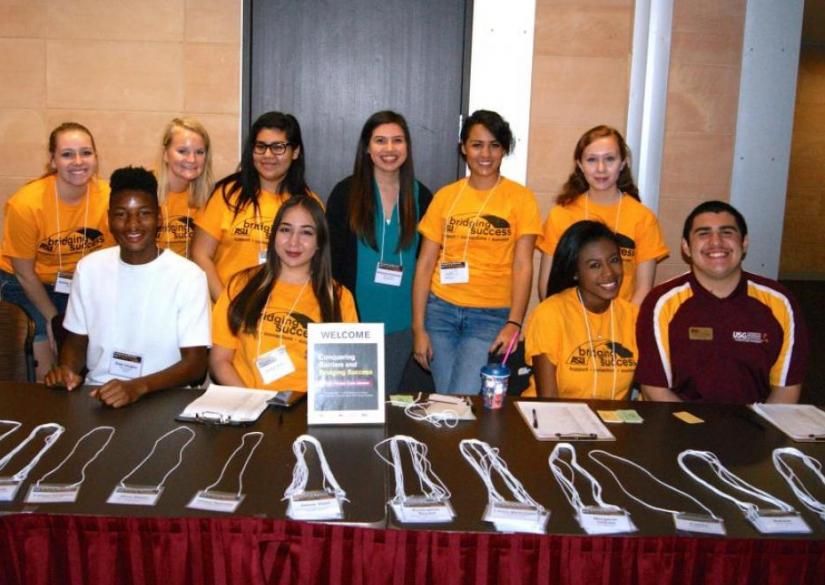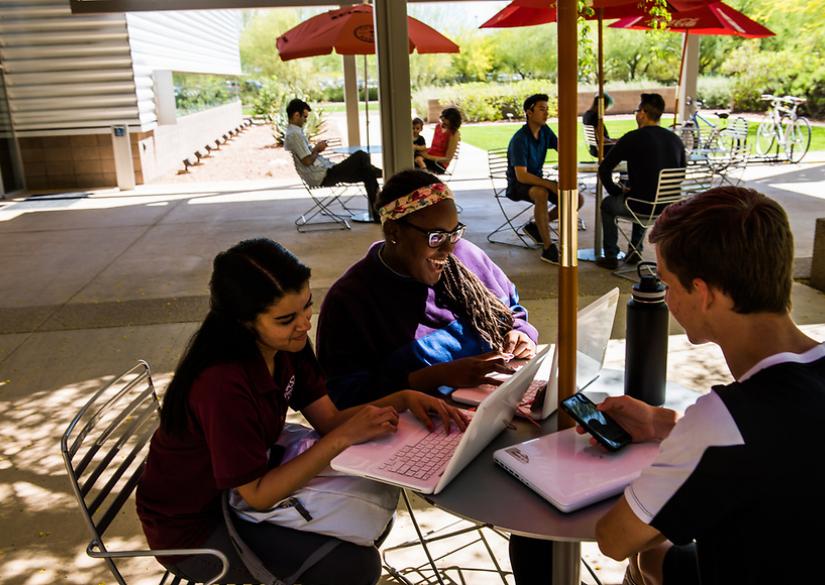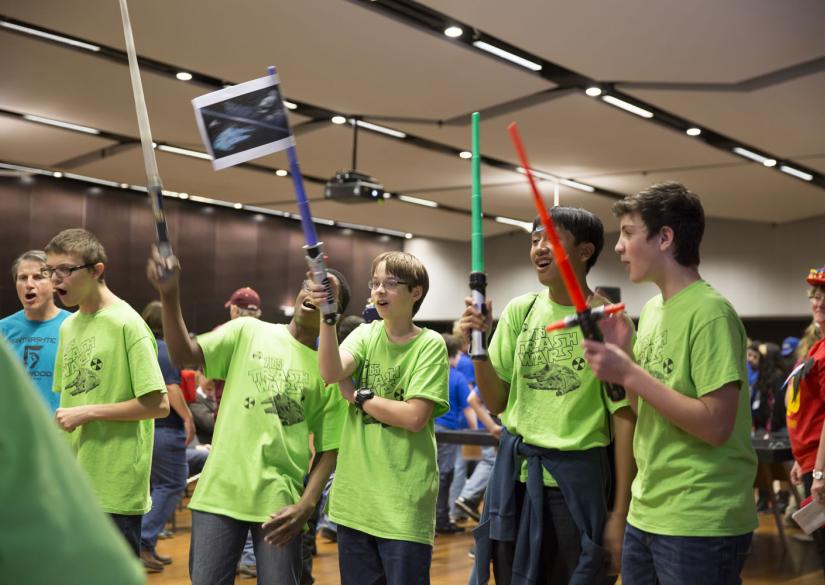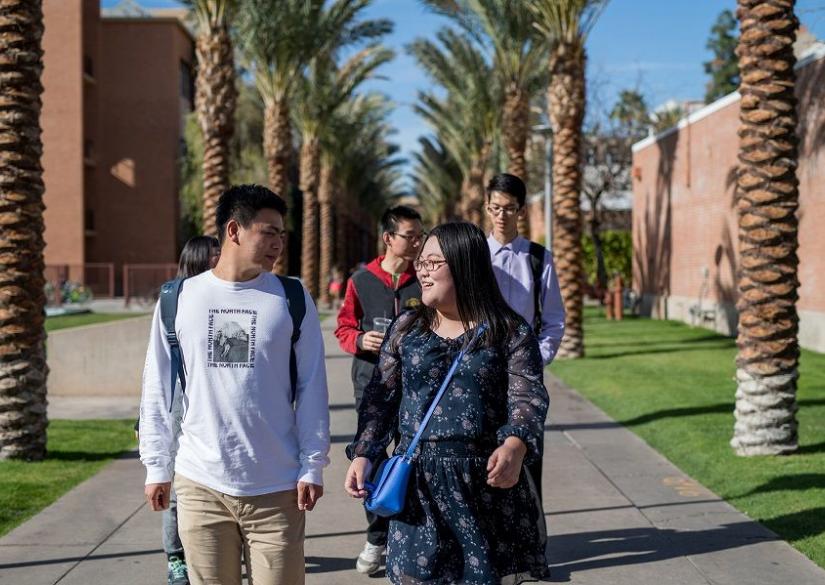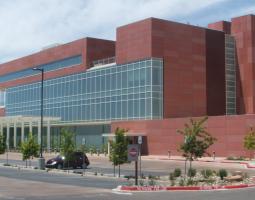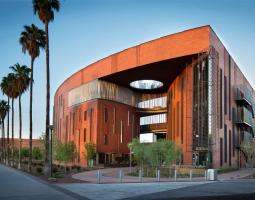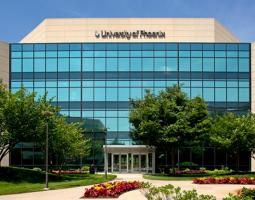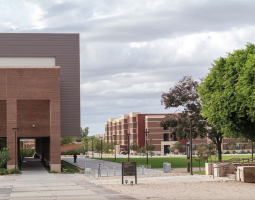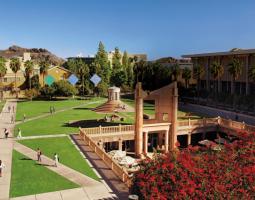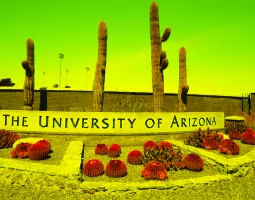Arizona State University Polytechnic Campus
Programs and prices, tuition fees in Arizona State University Polytechnic Campus
Undergraduate
● Age: 17+
● Duration: 3-4 years
● Language of instruction: English.
Arizona State University Polytechnic campus offers more than 40 technical training programs and more. Most popular courses:
- Aeronautical management technology
- Air traffic management
- Applied Biological Sciences
- Applied science
- Business
- Engineering
- Food industry management
- History
- Psychology
- Technical Entrepreneurship.
The university offers interdisciplinary scientific programs, such as “Scientific Engineering” - such courses will provide even more practical skills.
Master
- Age: 20+
- Duration: 1-2 years
- Language of instruction: English.
Popular destinations in the master's program:
- Applied Biological Sciences
- Applied science
- Educational leadership
- Engineering
- Environmental and Resource Management
- Information technology
- Manufacturing engineering
- Technical Communication.
Doctoral Programs
- Age – from 23 years old,
- The duration of training is from three years.
Doctoral programs will provide students with deeper knowledge in the chosen scientific field, opportunities to conduct individual and group research. For three or more years, students have been conducting practical work on a specialized topic, at the end of training they present it to the qualification commission.
The following specializations are available at the Polytechnic Campus:
- Clean Energy Systems,
- Agribusiness
- Engineering systems of education, design,
- Human Systems Engineering,
- Information Technology,
- Robotics, automated systems: mechatronics, automation,
- Systems Engineering.
Sun Devil Kids Camp
- Age – from 5 to 12 years,
- The training period is from four days.
The summer camp for children aged 5 to 12, held at the Polytechnic Campus and in Tempe, offers exciting sports activities, creative workshops and STEAM classes led by university professors.
The duration of training under the program varies from four days to a full summer cycle, lasting from May 27 to July 27.
Description of Arizona State University Polytechnic Campus
- Foundation: 1996
- Location: Gilbert, Arizona, USA
- Students age: 17+
- Type of training: blended
- Type of accommodation: residence
- Language of instruction: English.
Arizona State University Polytechnic campus is one of the four campuses of the largest state university in America. The eastern division of the university was opened in 1996 at the former US Air Force Base. Two faculties were established on the eastern campus:
- School of technology
- School of Management and Agribusiness.
A year later, an incubator was opened for experimental academic programs of the university. Today, the university has about 40 programs. Most of the programs on the campus are technical, it was no coincidence that the university was renamed in 2015 with ASU EAST Polytechnic Campus: this year the university finally formed its mission and focused on technical specialties.
Facts about the university:
- 84% of students receive scholarships
- The annual income of the university is $ 4.3 billion
- The university took first place in the number of innovations in 2020
- Includes 1% of the best higher education institutions in the world.

What factors are considered when evaluating U.S. universities, and how reliable are current rankings?
That's an interesting topic. The criteria used to evaluate universities vary by ranking. For nationwide rankings, factors like class size, teacher salaries, and the number of faculty members with advanced degrees in their field are common considerations. If a ranking focuses on student satisfaction, the criteria will differ. However, rankings don't always align with individual student needs and should be considered alongside other factors.
Faculties and colleges
ASU Polytechnic includes a number of specialized schools:
- Business
- Medical Solutions,
- Nursing, Healthcare Innovation,
- Engineering
- A global future,
- Integrative sciences, arts.
Scientific achievements
The university itself, like its Polytechnic Campus, is actively engaged in research activities in various scientific fields. Through discovery, innovation, and collaboration with leading organizations, ASU is directly involved in NASA's SpaceX rocket launches, the exploration of the Bermuda Triangle, the creation of specialized equipment for musicians, and other important things in people's lives.
Accommodation, meals, prices
Students are offered a wide selection of residences located on or off campus:
- Palo blanco hall
- Century Hall (founded in 2012)
- Dean and bell halls
- Eagle hall
- SamLu Hall
- Falcon hall
- Mustang hall
- Phantom hall
- Talon Hall.
Activities Arizona State University Polytechnic Campus
Popular sports sections and clubs:
- Baseball
- Golf
- Cross country
- Wrestling
- Football
- Time management
- Association of Anthropologists
- cooking school
- Table games
- Business club.
Advantages
- One of the best universities in the country, with awards in many academic fields, including those that make it more successful than Stanford University, Cornell University, University of Yale and other recognized institutions,
- Several specialized schools with a wide range of bachelor's, master's and doctoral programs,
- A multinational student community,
- Active research and practical activities,
- A modern campus with a full range of necessary services for comfortable and successful learning, the development of individual abilities.
Facilities and equipment at Arizona State University Polytechnic Campus
The campus is located in Gilbert on an area of 600 acres. In 2008, a polytechnic complex was opened in the very center of the campus, which includes modern laboratories, training centers and a new student residence.
Admission dates and extra charges
Students can apply for the same scholarships that the University of Arizona offers. 84% of students receive some form of material assistance.
Enrolment process
Applicants will have to go through several entrance stages:
- Filling out the online form, submitting documents and paying the application fee,
- Passing entrance tests, interviews,
- Obtaining an official invitation to study, assistance in obtaining a visa if necessary,
- Arrive on campus to start classes.
Perspectives
In the process of training, students receive competitive specialized knowledge and applied skills, thanks to which they continue their educational path in their specialization or are employed in leading organizations in their scientific field.
Entry requirements, how to apply, what is required to enrol
International applicants applying for higher education programs at ASU Polytechnic must provide:
- Personal documents: passport, health insurance, visa or residence permit,
- Academic certificates: certificate of complete secondary education and certificate of preparatory course; Bachelor's degree; Master's degree,
- Grade cards, exam results from previous places of study,
- Language test results confirming English proficiency: TOEFL iBT (from 61), IELTS (from 6.0), PTE Academic (from 63) or a university-recognized equivalent. The higher the level of education to which the candidate enters, the more points will be required.
Some degrees will require applicants to have professional experience, a portfolio, or pass specialized entrance exams.
Scholarships Arizona State University Polytechnic Campus
Although international students are not eligible for federal and state financial aid, they have several options to fund their studies at ASU. Chief among these is the New American University Scholarship, awarded on the basis of academic merit, awarded to a limited number of qualified international undergraduate students. A few more funding options:
- Faculty and specialized school awards based on specialized merit, participation in research activities,
- Private scholarships of partner organizations,
- Part-time work on campus.
Literature and references
Institution on the map
Residence permits, citizenship and other services
- Guardianship services during the studies
- Student supervision
Review about Arizona State University Polytechnic Campus
Recommendations on when to apply
| Language courses, schools and children's language camps | Primary and secondary education - private schools | Preparation programmes for entering universities - higher education | Higher education (after completing accredited programs A-level, IB, High School) - Bachelor, Master, MBA |
| - we recommend to apply 6-9 months before the start of the course (some camps and schools offer discounts for early booking or for lengthy study programs) - there are some very popular and high demand children's camps, where the applications need to be submitted 1 year in advance (in particular Switzerland , Great Britain , USA , Canada , Austria) | - we recommend to apply one year before the start of the training program, - some schools have a specific time frame (September-November - please specify an individual school) - some schools require tests in several stages (UKISET, internal tests of the school: English, mathematics, logics, subjects, interview, some require a personal visit) | - we recommend to apply one year before the start of the program, - for Foundation and Pathway programs, IELTS and TOEFL certificates are usually required, respectively | - recommended submission one year before the start of the program, - the deadline normally closes in January, for TOP HEIs and, as a rule, in March in other universities - for a bachelor, a Foundation or Pathway preparatory program a completed A-level, IB, High School + IELTS / TOEFL are required - for Masters you need a graduated higher education, in some cases you need a pre-Masters program - MBA requires completed higher education, work experience preferably at least 2-3 years, etc. |




